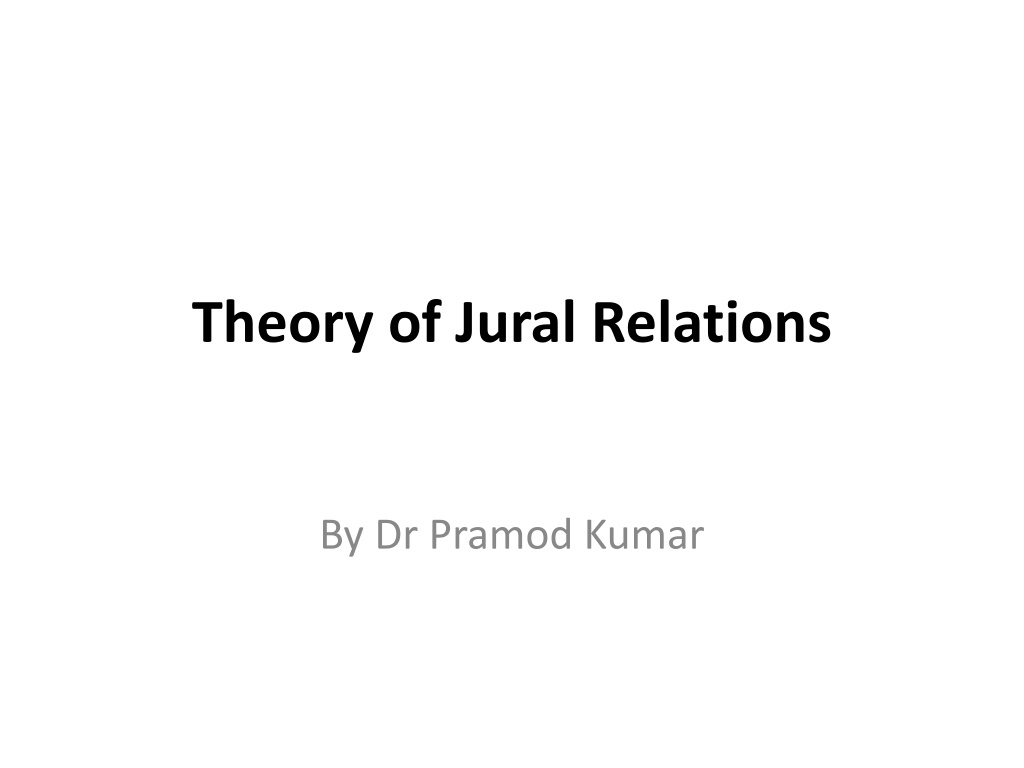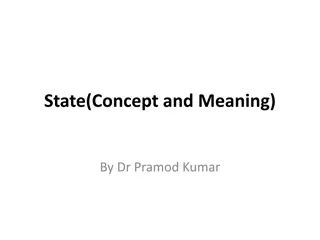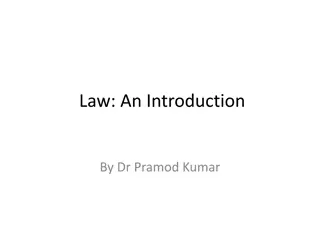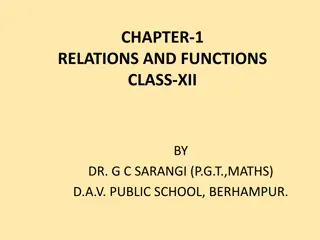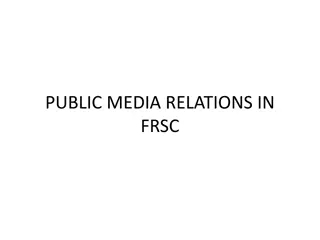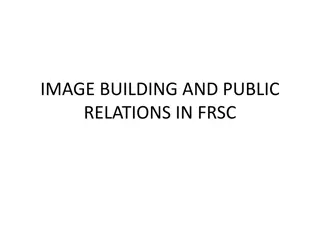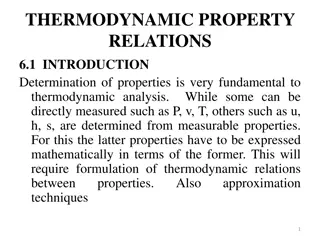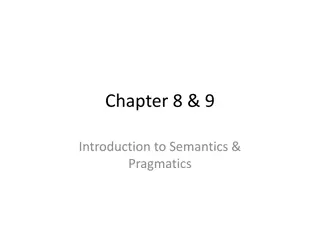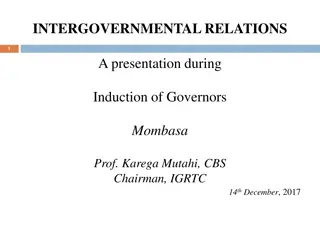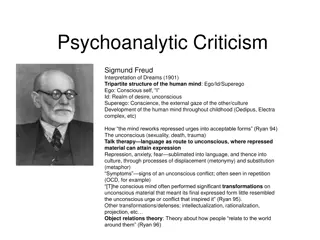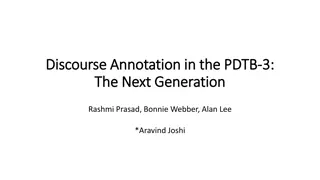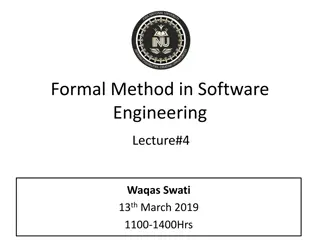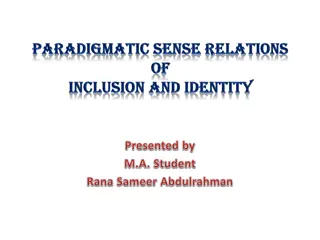Understanding the Theory of Jural Relations by Dr. Pramod Kumar
According to Dr. Pramod Kumar, the Theory of Jural Relations focuses on legal concepts like rights, duties, privileges, powers, immunities, liabilities, and more. By arranging these concepts as opposites and correlatives, the theory helps in understanding legal issues with clarity and practical examples.
Download Presentation

Please find below an Image/Link to download the presentation.
The content on the website is provided AS IS for your information and personal use only. It may not be sold, licensed, or shared on other websites without obtaining consent from the author. Download presentation by click this link. If you encounter any issues during the download, it is possible that the publisher has removed the file from their server.
E N D
Presentation Transcript
Theory of Jural Relations By Dr Pramod Kumar
Theory of Jural Relations According to Hohfeld, one of the greatest obstacles in finding solutions to legal problems is the assumption that all legal concepts can be reduced to rights and duties . Moreover, it is believed that the aforesaid two legal concepts are adequate enough to help solve the problems. Although prima facie it may appear to be a problem of only terminologies, Hohfeld argues that in a closely reasoned (legal) problem such an issue may lead to lack of clarity in thoughts and expression. He identifies eight fundamental legal concepts, namely- rights, privilege, power, immunity, no-rights, duty, disability and liability. He then proceeds to arrange them as jural opposites and jural correlatives and explains their practical application by giving relevant examples.
Theory of Jural Relations The arrangement of the concepts as opposites and correlatives is as follows: Right opposites No-Right correlatives correlatives Duty opposites Privilege Power opposites Disability correlatives correlatives Liability opposites Immunity
Rights and Duties Hohfeld proposes that the term rights must be confined to only that which exists corresponding to a duty. Rights and duties are correlated concepts and when a right is infringed there is always a duty that has been violated. Hohfeld uses the example of trespass to explain the correlation between rights and duties. He states that suppose if X has a land and he has the right against Y that the latter shall not enter in his land, Y also has the corresponding duty to not enter upon X s land. He goes on to say that an appropriate synonym for the term right , in the light of the aforesaid meaning accorded to it, would be claim .
Privilege and No-rights Hohfeld defines privilege as the jural opposite of duty. Privilege, according to him, is the negation of a duty. The negation of duty takes place only when the contents of both, the duty and privilege, are opposite to each other. For instance, a duty not to enter can be negated by the privilege of entering. Duty is the correlative of right. Similarly, privilege also has a correlative. However, there exists no particular term to explain the same, which is why, Hohfeld has decided to term it as a no-right . Thus, if I have the privilege of entering into land, the correlative is a no- right against my entering to the land. Unlike a duty which has to be necessarily fulfilled, one may or not exercise his privilege. There is no right that is infringed in case of non-exercise of a privilege. After discussing the meaning of the concept of privilege, Hohfeld emphasizes upon the importance of differentiating between a privilege and a right and discusses how usage of both the terms interchangeably has caused blurring of ideas .
Powers and Liabilities Legal power is the jural opposite of legal disability and the jural correlative of legal liability. Power is the ability conferred upon an individual by the law to alter or create new legal relations. One can make a will of his property or can alienate his property; one can marry one s deceased wife s sister all these are often termed as rights however a careful legal analysis reveals that they are powers, not rights. A synonym for legal power is (legal) ability. Legal relations may be altered by facts and circumstances which may or may not be in human control. When such facts are in control of one or more human beings, being is said to possess legal power. Liability is the jural correlative of power. Whenever a person exercises the power to alter existing legal relations or to create new legal relations, the person with whom such legal relations have been created or altered owes a liability to the former. Hohfeld proposes the terms subjection and responsibility as synonyms of the term liability . Many duties or obligations , ignorantly stated to be so, are actually liabilities.
Immunities and Disabilities Immunity is the jural correlative of disability and the jural opposite of liability. In simple terms, immunity is the negation of liability. According to Hohfeld, the contrast between power and immunity is the same as the contrast between right and privilege. He states that a right is the affirmative claim against someone and privilege is a freedom from such an affirmative claim. Similarly, power is the affirmative control over a legal relation and immunity is the freedom from such control. The jural correlative of immunity is a disability which refers to no-power. Thus, when a person exercises immunity in a legal relationship with another, the latter has no power over the legal relation.
Hohfeld explains exactly how several conceptions are mistaken as rights and duties. With his theory of jural relations, he has provided legal professionals with a powerful tool to help understand complex legal problems and devise effective solutions. The widespread tendency to confuse rights with liberties can lead a jurist to make conceptual errors and faulty interpretations. For example, if one believes that the right to free speech is a right (in the strict sense), but in fact it is only a liberty, then one will wrongly believe that others have duties of non-interference which are correlative to this right . The concepts of rights, privileges, powers, immunities seem to be the legal benefits granted to an individual while the four correlative terms duty, no-right, liability and disability are the corresponding legal burdens.
